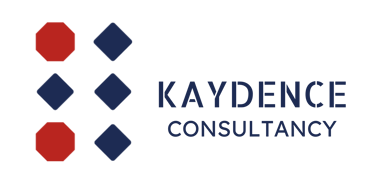Kaydence partners with the CSH to drive innovative solutions in education and healthcare.
Charting a Successful Career with an Accounting Degree: Opportunities and Insights
Explore the diverse career opportunities and skills you can gain with an accounting degree. This blog delves into what you will learn in an accounting programme, the wide range of careers available, and how this degree opens doors to success in finance, business, and beyond. Plus, discover some famous individuals who started their careers with an accounting background!
EDUCATION AND LEARNING
2/17/20254 min read


What Can You Do with an Accounting Degree?
An accounting degree offers a solid foundation for a successful career in the financial world. Accountants are essential to businesses, government organizations, and non-profits, ensuring that financial records are accurate, taxes are paid, and financial decisions are sound. This degree not only opens doors to various career opportunities but also equips students with valuable skills in financial management, analysis, and reporting.
Popular Careers for Accounting Graduates: Graduates with an accounting degree can pursue a wide range of careers in different industries, including:
Certified Public Accountant (CPA) – Providing accounting services, auditing, and tax consulting to individuals or businesses.
Financial Analyst – Analyzing financial data to assist businesses in making investment and operational decisions.
Management Accountant – Helping businesses plan and control their finances, making sure the organization’s financial goals are achieved.
Internal Auditor – Reviewing financial records to ensure compliance with regulations and to identify risks or fraud.
Forensic Accountant – Investigating financial discrepancies, fraud, and criminal activities involving money.
Tax Consultant – Specializing in advising individuals or organizations on tax planning, compliance, and strategies to reduce tax liabilities.
Financial Controller – Overseeing the financial operations of a company, ensuring accuracy and financial integrity.
Budget Analyst – Managing an organization’s budget, tracking expenses, and ensuring financial resources are allocated appropriately.
Investment Banker – Helping organizations raise capital, advise on mergers and acquisitions, and provide investment solutions.
What Will You Learn in an Accounting Degree?
An accounting degree teaches students how to prepare and analyze financial statements, understand tax laws, and ensure that organizations comply with financial regulations. Some of the key topics covered in an accounting degree include:
Financial Accounting – Learning how to prepare and interpret financial statements, such as balance sheets, income statements, and cash flow statements.
Managerial Accounting – Focusing on the internal processes of businesses, including budgeting, cost control, and performance analysis.
Auditing – Understanding how to evaluate financial records and ensure that they are accurate and comply with legal standards.
Taxation – Learning the principles of tax law and how to advise clients or businesses on tax planning and compliance.
Accounting Information Systems – Gaining an understanding of software and technology used to manage and analyze financial data.
Ethics in Accounting – Studying the ethical standards and responsibilities of accountants, including how to navigate conflicts of interest and maintain integrity.
Cost Accounting – Analyzing the costs associated with producing goods or services and making recommendations for cost management.
Additionally, many programs require practical experience through internships or hands-on projects, helping students apply theoretical knowledge to real-world scenarios.
What Should You Study to Pursue an Accounting Degree?
While it’s not necessary to have a background in accounting before entering the field, a strong foundation in mathematics, business studies, or economics is highly beneficial.
Some universities may require specific subjects such as mathematics, business, or economics for entry into an accounting programme. Having an interest in working with numbers, problem-solving, and understanding financial systems will also help you succeed in the field.
Most accounting degrees will have core subjects in the first year, followed by more specialized topics in later years. Students may also choose to pursue additional certifications, such as the CPA (Certified Public Accountant) or CMA (Certified Management Accountant), to further enhance their qualifications and career prospects.
What Do Accounting Graduates Go On to Do?
Accounting graduates are highly sought after across a wide range of industries. Many work in corporate finance, public accounting firms, or government agencies, while others choose to become entrepreneurs or pursue independent consulting.
Corporate Finance: Many accounting graduates start their careers working for large corporations, where they manage financial statements, budgeting, and internal audits.
Public Accounting: A significant number of graduates become CPAs, providing auditing, tax, and consulting services to clients ranging from small businesses to large corporations.
Government: Accountants play crucial roles in government, ensuring that tax revenue is collected, budgets are balanced, and public funds are spent responsibly.
Non-Profits: Many accounting graduates work for non-profit organizations, helping them manage finances, track donations, and ensure compliance with regulations.
Consulting and Advisory: As financial advisors, many accountants work for consulting firms, providing expert advice on business decisions, tax strategies, and financial planning.
Graduates who pursue certifications like the CPA or CMA typically see enhanced career prospects, including higher earning potential and more job opportunities.
Famous People Who Studied Accounting
While accounting is often seen as a behind-the-scenes profession, some notable figures have backgrounds in the field. Famous individuals who studied accounting include:
Maya Angelou – Renowned poet, memoirist, and civil rights activist, who initially studied accounting before becoming a writer and performer.
Robert Kiyosaki – Author of "Rich Dad Poor Dad" and financial educator, who has a background in accounting.
Chris Gardner – Entrepreneur and motivational speaker, whose life story inspired the movie The Pursuit of Happyness, started his career in accounting.
Sheryl Sandberg – Former COO of Facebook, who has a degree in economics but also studied accounting during her career path.
These figures show that accounting can serve as a stepping stone to diverse and high-profile careers, proving that the skills learned through an accounting degree can lead to a wide range of opportunities in various industries.
Conclusion:
An accounting degree provides a clear and structured path into the world of finance and business. Whether you're analyzing financial statements, advising clients on tax strategies, or managing budgets for large organizations, accounting offers a wealth of career opportunities. The skills gained from an accounting degree—attention to detail, analytical thinking, and financial literacy—are not only in demand but also provide a solid foundation for success in any industry.
Kaydence Consultancy
Global platform for study abroad solutions, marketing strategy and your efficient research partner
Contact
Get in touch
director@kaydenceconsultancy.com
+9188916082
© 2025 Kaydence Consultancy. All rights reserved.
Designed with care | Powered by Innovation
Navigation
Company
Career
Legal
M G Road, Kochi, Kerala, India
